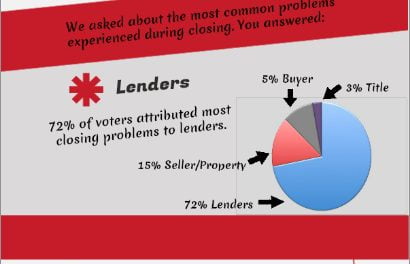Question:
Is the FHA informed when a property is conveyed to an investor?
Answer:
The answer is dependent, and requires an understanding of the the Federal Housing Administration (FHA)’s no-investor policy.
The FHA’s investor ban exists to keep a lid on the amount of risk the FHA takes on by insuring mortgages. Investors generally have a higher default rate compared to owner-occupants of single family residences (SFRs), according to an article by Colgate University. [HUD 4155.1 Ch-7 §1.b]
The Department of Housing and Urban Development (HUD) is committed to reducing the number of defaults on FHA-insured mortgages, and thus discourages investors from taking over FHA-insured mortgages. To that end, HUD has the right to call the mortgage if taken over by anyone other than an owner-occupant buyer.
However, in spite of HUD‘s due-on enforcement policy, the servicing lender is permitted to call the mortgage on a subject-to transfer only with HUD’s prior approval. That being said, as a matter of practice, HUD does not authorize a call when an investor acquires the property, unless the investor defaults on mortgage payments.
A history of FHA investor purchases
Speculators often collect and keep rent without making payments on the mortgage, called rent skimming, or equity skimming when done on a scale of five or more units. Rent and equity skimming are crimes under federal and state law. [12 United States Code §1709-2; Calif. Civil Code §§890 et seq.]
In response to the activities of rent skimming speculators during the 1980s, HUD prohibited investor assumptions of FHA-insured SFR mortgages. Thus, FHA only allows the assumption or take-over of an FHA-insured SFR mortgage by qualified owner-occupant buyers. Further, HUD has the right to call the mortgage if taken over by anyone other than an owner-occupant buyer. [HUD 4155.1 Ch-7 §1.b]
Thus, investors are dissuaded from taking over FHA mortgages — but not stopped from doing so entirely. The investor is aware that before the lender is permitted to call an FHA-insured mortgage on the sale of the SFR property, the lender is to first obtain HUD’s approval. [HUD Mortgage Handbook 41551.1 Rev-5 Ch-7 §1.b]
Investors also know that in practice, HUD does not grant the right to call unless a default already exists. Further, the objective of lenders is extra revenue, obtained by demanding and receiving an assumption fee of one-half point or more on the sale. Thus, lenders are limited to using the due-on clause as a device to pressure an investor to assume the mortgage, typically accomplished by contacting the seller prior to the close of escrow.
Some other investor restrictions were temporarily waved in 2010-2014, during and in the aftermath of the Great Recession. During this time, the FHA allowed buyers to purchase homes sold by flippers who had owned the home for 90 days or less.
FHA and their parent organization, HUD, were aware their policy severely cripples a defaulting seller’s ability to sell their property in order to:
- financially right themselves; or
- move to relocate for a new job.
By lifting these restrictions, the FHA and HUD did their part to help jobless homeowners relocate and support the economic recovery.
In 2016, flippers are under the same rules in place prior to the 2010 waivers and the FHA’ ban on investors continues. However, these are small deterrents for investors who are well aware of FHA and lender practice to turn blind eyes to investor assumptions.














